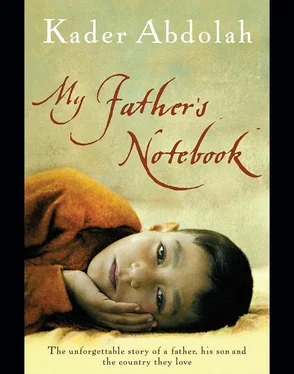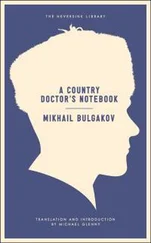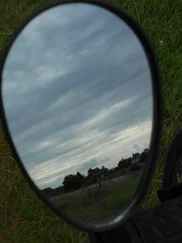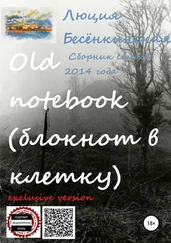“Why not?”
“I don’t like him.”
“No? Why not?”
“He’s not a good man. He’s no good.”
He pointed at the portrait and was about to say something. Then he stopped himself. His hand dropped back into his lap.
“It’s almost too complicated to explain,” I said, “but I’ll give you an example. Do you remember the policemen at my school who beat you over the head with their clubs?”
“Yes, I remember.”
“Those policemen were working for the shah. In Tehran, at my university, there are lots of policemen, too. They beat up the students, arrest them and throw them in jail. They even want to arrest me.”
“Arrest you? Why? What have you done?”
“Nothing. Or, at any rate, nothing special. They don’t want me to read certain books. Or to say certain things. They expect me to honour the shah, but I don’t like him. They’re keeping me under surveillance. They’re hoping to catch me. That’s why I can’t come home.”
“Oh,” I read in his gesture.
“And you know what’s worse? The policemen in Tehran don’t wear uniforms. They wear ordinary clothes, just like you and me. You never know who to trust. I don’t want them to recognise me, so that’s why I’m wearing a hat. It’s also the reason for the glasses and the moustache.”
“How can you read books about light and air when there are so many policemen?”
I wanted to tell him that I wasn’t reading any books about light and air at the moment, but I refrained. It would only hurt him.
“I’m going to tell you something else. Do you remember Dr Pur Bahlul? The dentist?”
“Of course I remember him.”
“Do you know who had him arrested? The shah! He ordered his policemen to arrest the dentist! He’s still in jail. All of his teeth have been broken. Do you understand what I’m saying? That’s why I hate the shah. Important people — people like the dentist who read books — also hate the shah.”
Was it all right to use simple examples to explain complex issues? Was it fair to saddle him with my personal opinions? Shouldn’t I have left him in peace and simply accepted his opinions and his view of the world?
Now that I can look back on those years with more objectivity, I sometimes feel a twinge of regret. But only sometimes. There was no other way. He and I couldn’t possibly hold different opinions. We had to be one, to share one ideology. I had to bring him close to me, close to the new reality in my life, so he wouldn’t get lost in the unfamiliar world of his son. Suppose I was arrested? Suppose the secret police suddenly burst through the door in the middle of the night and searched his house because of his son’s political activities and he had no idea what was going on?
I felt that it was my duty to explain the world to him. I had been appointed by family, friends, neighbours and even nature to be my father’s guide, so I had to lead him as I saw fit.
Once and for all, let me make it clear — if only to myself — that if I’d had any other father, I might not have felt the need to join the movement, or at any rate I wouldn’t have become so involved or gone so far. Being the son of such a father brought me, led me, propelled me in this direction. That’s the long and the short of it. We had to adjust our steps to each other’s stride. He had to stand by me and therefore by the leftist movement in which I was involved. It was time to let him know that we — my comrades and I — might need him some day.
“My friends and I are against the shah,” I signed. “He has to go.”
At first he didn’t understand. He sat and stared at me, without moving. All of a sudden it dawned on him. His hands began to tremble.
“What do you mean, ‘go’?”
“Just go! Down with the shah!”
“But he has a pistol strapped to his side!”
I thought it over. Should I or shouldn’t I?
I hesitated for a few moments, then finally reached under my jacket and pulled out my gun.
We go to see Louis. Ishmael hardly
knows him, but that’s not important.
There’s a young woman in Louis’s life,
whom Ishmael is destined to meet.

I knew what sand was, and hills, too, but I had no idea what Dutch dunes would look like or how a person could go for a walk through hills of fine sand.
I looked up the word in the dictionary:
dune\ 'd (y)ün \ n — s often attrib [F, fr, OF, fr, MD dune —more at DOWN] 1: a hill or ridge of sand piled up by the wind commonly found along shores, along some river valleys, and generally where there is dry surface sand during some part of the year 2: TWINE 5
• • •
I received a letter from a man named Louis, whom I’d met on the train.
It was late and I’d caught the last train home from the university. I stepped into a nearly empty car and saw a man sitting at the far end. Tired, I sat myself down, closed my eyes and dozed off.
How long had I been dozing? I don’t know. Suddenly I heard someone calling, “Sir!”
I opened my eyes and looked around. The man in the back was still the only person in the train. Had he said something or had I dreamed it?
“Would you care to join me?” the man asked. “I’m sitting here all by myself, too.” I went over to him. He didn’t look old enough to need a cane, but one was resting by his side.
“Where do you come from?” he asked.
“From Persia … Iran,” I said.
“I thought so,” he said, nodding happily. “That’s why I called you over. I can sometimes spot an Iranian just by the way he carries himself. I spent years in Iran, working as a doctor.”
“Oh, really? How nice!” I said.
I sat down.
“Let me introduce myself. I’m Louis.”
The conversation quickly became more personal. He talked about his stay in the south of Iran, where the rich oil fields are. He’d been there at the beginning of the revolution, but the embassy had made him leave, much against his will, along with all the other Dutch citizens.
As with most chance encounters, we talked about how I’d ended up in Holland, what I was doing and what I thought of it.
After an hour-long conversation, he wrote down my address. I got out at my usual station and he travelled on to spend the night at a friend’s.
A few weeks later a letter arrived. It was only after reading the first few lines that I realised who it was from. At the bottom of the letter he’d included a translation of a poem by Omar Khayyám:
We are no other than a moving row
Of Magic Shadow-shapes that come and go
Round with the Sun-illumined Lantern held
In Midnight by the Master of the Show.
I remembered how delighted he’d been to hear that I was studying Dutch literature.
He thought Persian literature was beautiful. When he was living in Iran, he’d known very little about our literature. Only after his return to Holland had he gone looking for Persian classics in translation.
In his letter he said that he very much hoped we could meet again and he invited me to go and visit him.
At first I didn’t take his invitation seriously. I had several Dutch friends — Igor, a number of local artists and poets, a few teachers at the university — but this was the first time a Dutch person I hardly knew had asked me to his home. He lived in Agnet aan Zee. I looked at the map. It wasn’t all that far away, but still I thought, no, I won’t go, he probably wants to spend all night reminiscing about Iran and I’m not in the mood for that.
Читать дальше













